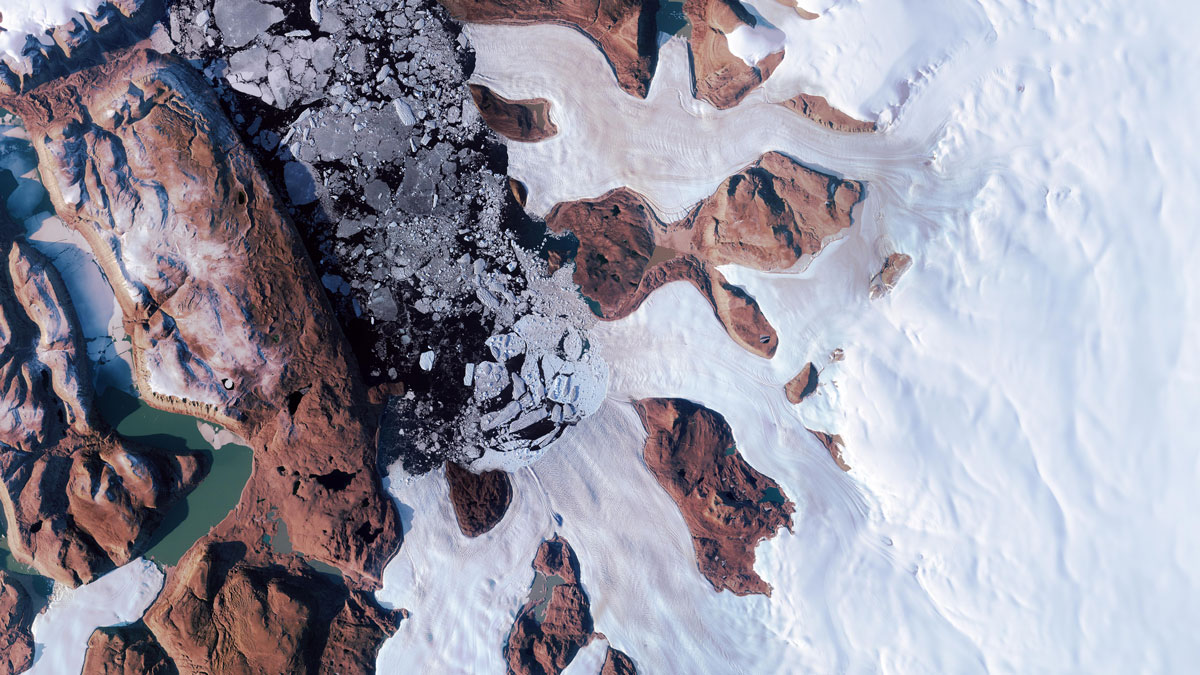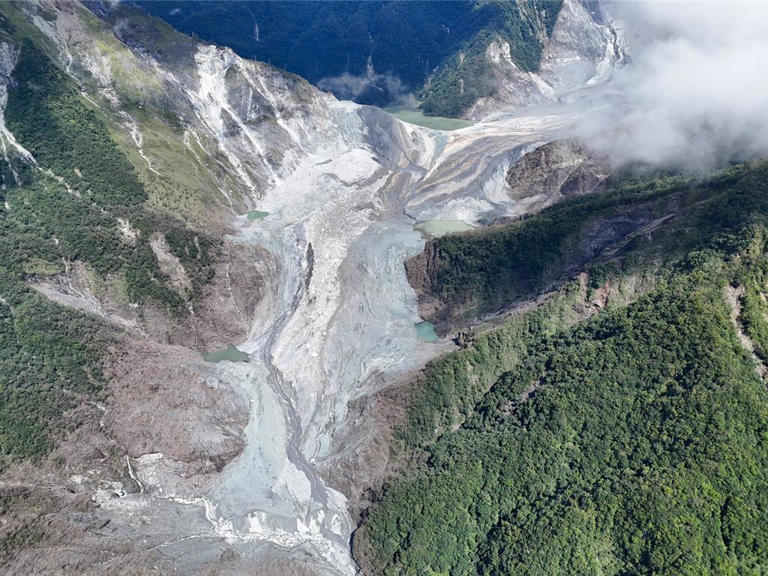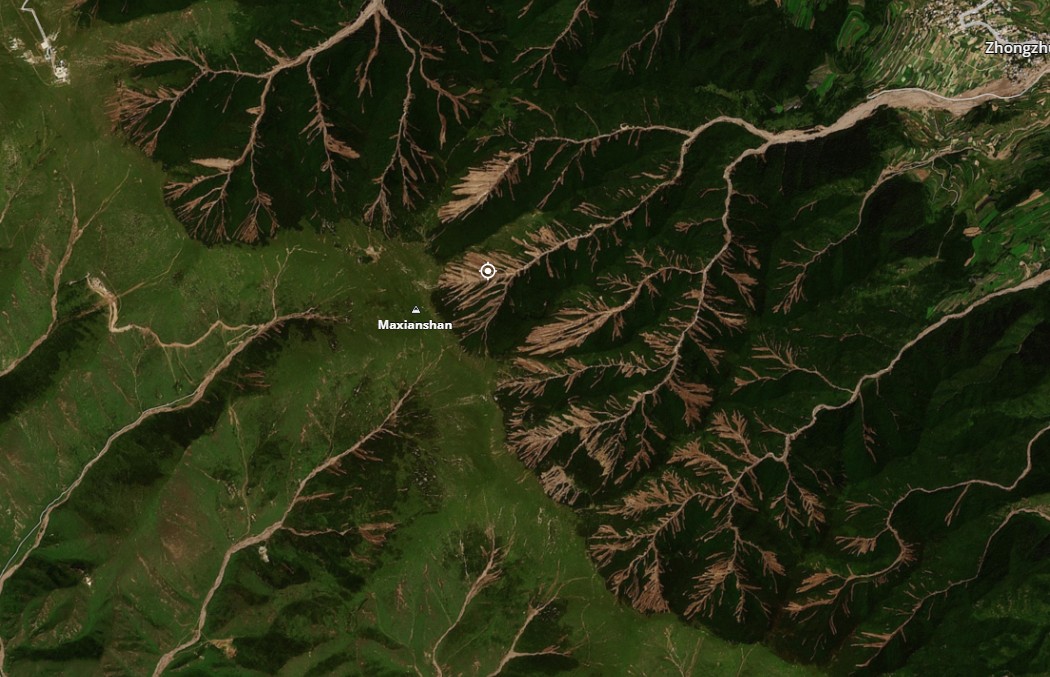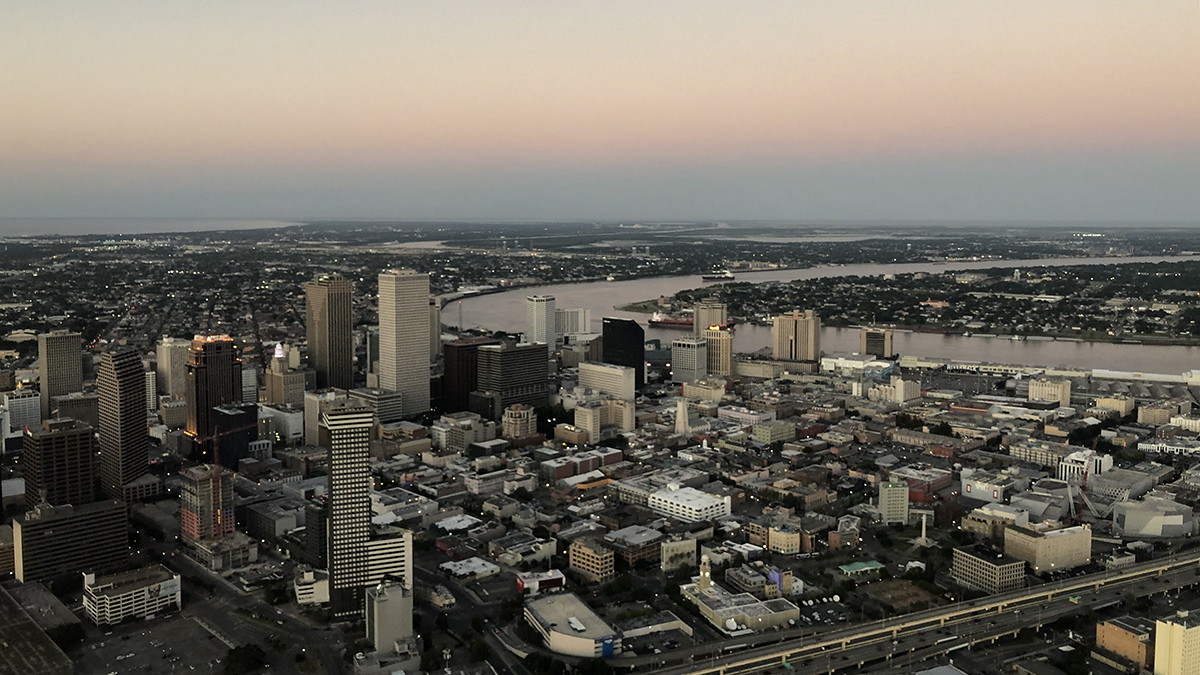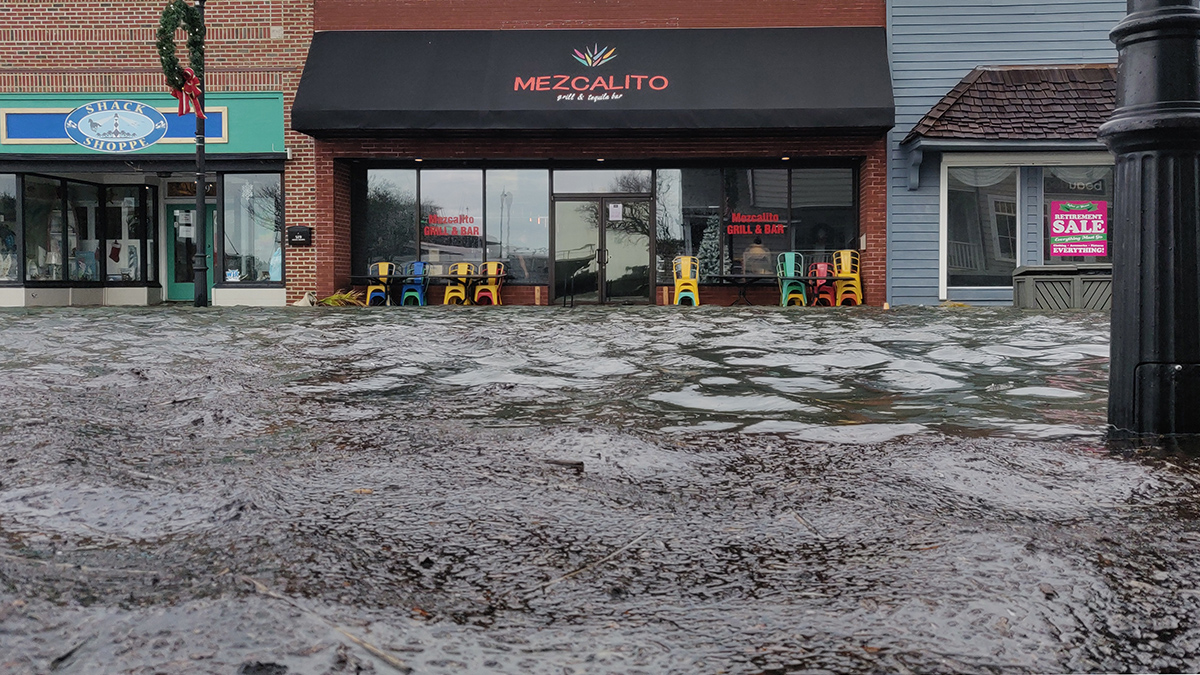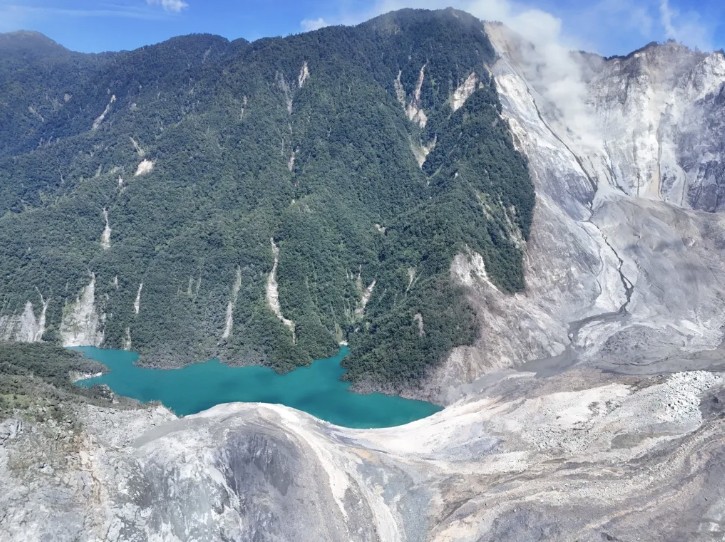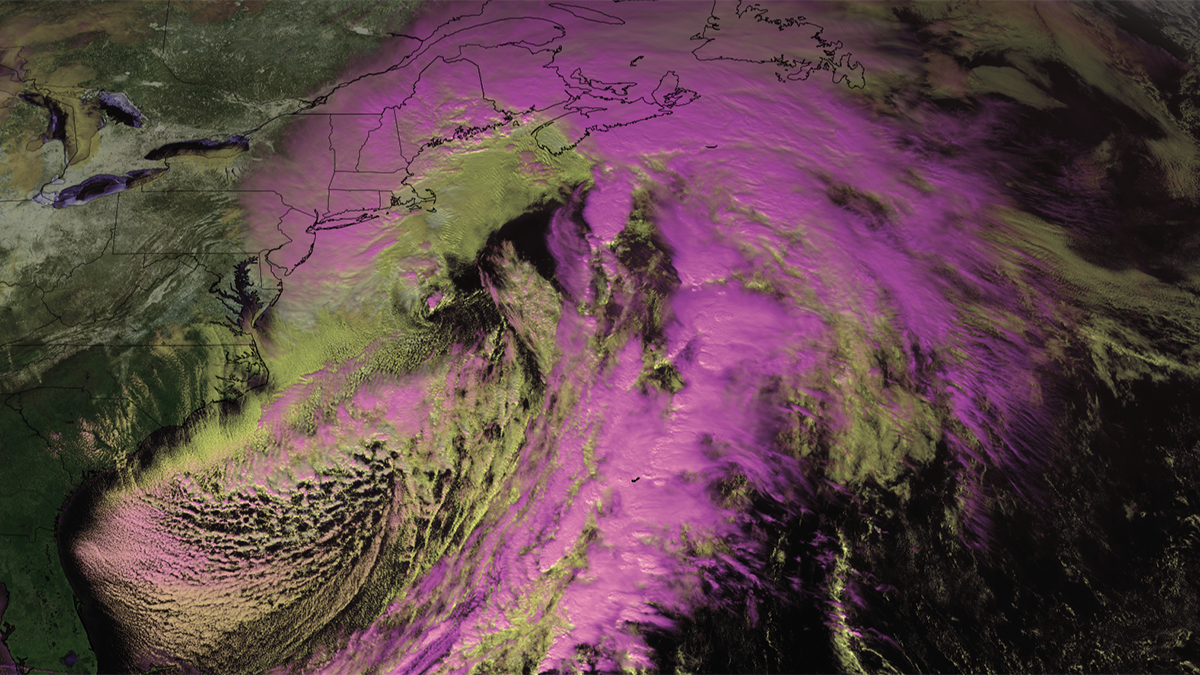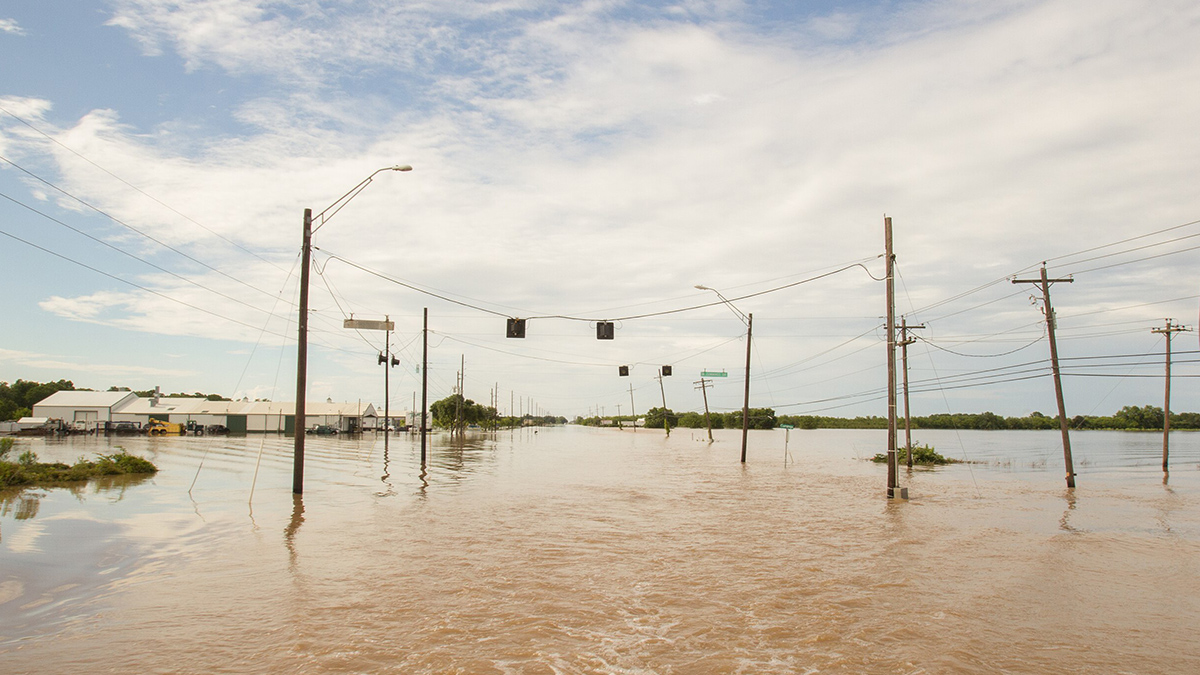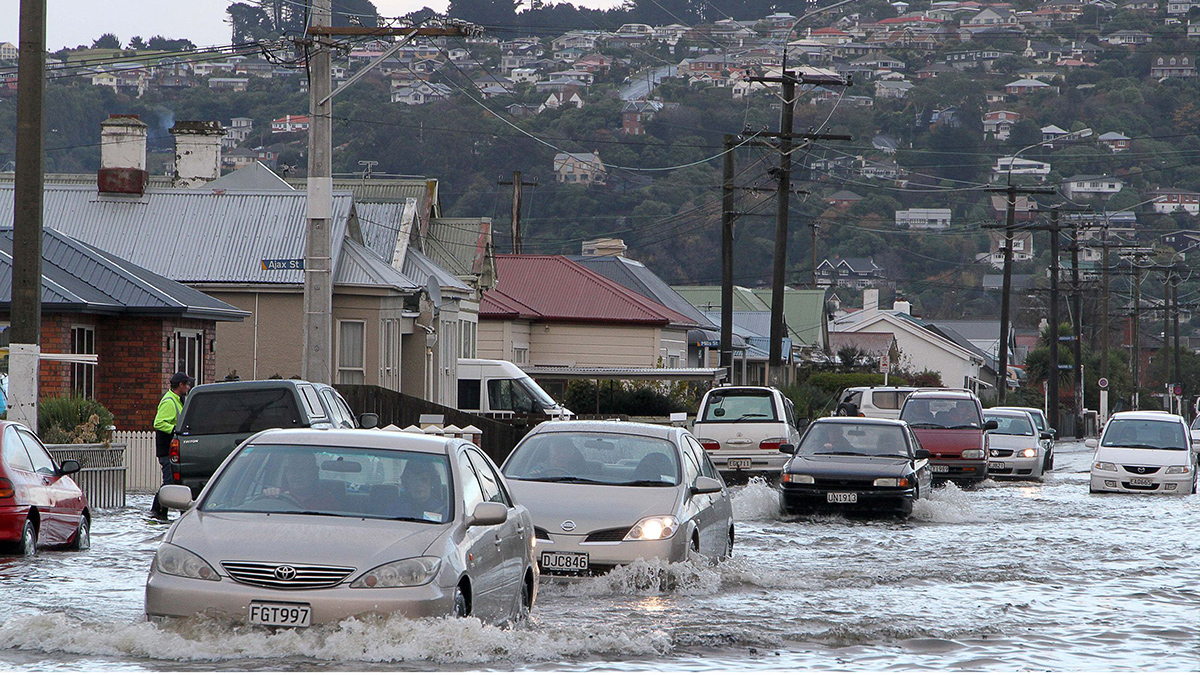When a lake beneath the Greenland Ice Sheet drained, its water burst through the ice sheet’s surface. This surprising event may have affected the movement of a nearby glacier.
floods
An update on the 21 July 2025 rock avalanche in the Matia’an valley, in Wanrong township in eastern Taiwan.
Following the passage Typhoon Podul, the lake created by this massive landslide has now grown considerably. Overtopping is expected in October, although could occur sooner if further heavy rainfall occurs. The landslide-dammed lake behind the the enormous 21 July 2025 rock avalanche in the Matia’an valley, in Wanrong township in eastern Taiwan continues to fill. […]
The 7 August 2025 landslides and debris flows in Yuzhong County, Gansu Province
At least 43 people were killed in devastating landslides and debris flows in northern China. Planet Labs images provide an insight into this disaster. It is extremely challenging to keep up with the landslides occurring around the world at the moment. There has been a lot of attention paid to the remarkable rock slope failure […]
Parts of New Orleans Are Sinking
Areas near the airport, along floodwalls, and in nearby wetlands are subsiding because of a combination of natural and anthropogenic forces.
Residents Know When Floods Happen, But Data Must Catch Up
Federal flood measurements often don’t match what people see in their communities. Scientists have created a hyperlocal solution.
The challenges of the valley blocking landslide in the Matia’an Valley in Wanrong township, Taiwan
The 21 July 2025 rock avalanche is generating a lake that could have a volume of 86 million cubic metres at the point of overtopping. This poses a threat to at least seven downstream communities in east Taiwan. Yesterday, I posted about the enormous 21 July 2025 rock avalanche in the Matia’an valley, in Wanrong […]
New Research Shows More Extreme Global Warming Impacts Looming for the Northeast
One new study identifies a 17% increase in the destructive potential of the strongest nor’easters, while another bolsters links between Arctic ice melt and dangerous blizzards.
The 8 July 2025 catastrophic flood at Rasuwagadhi in Nepal
Yesterday, catastrophic flood swept down the Bhote Kosi river through Tibet and Nepal. At least 28 people have been killed. There is speculation that this might have been a GLOF. On 8 July 2025, a catastrophic mudslide / flood suddenly struck the Rasuwagadhi border crossing point between Tibet and Nepal, causing extensive damage. The Himalayan […]
Científicos revelan los peligros ocultos del calor y las inundaciones en Texas
Una parte más amplia del “Estado de la Estrella Solitaria” podría verse afectada por más olas de calor e inundaciones de lo que sugieren registros previos.

